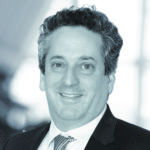
By Noah Solomon
Special to the Financial Independence Hub
It has been 243 years since Adam Smith, “The Father of Economics” wrote An Inquiry into the Nature and Causes of the Wealth of Nations. In this magnus opus, Smith introduced the concept of the “invisible hand,” which can be described as an unobservable market force that helps the demand and supply of goods in a free market to reach equilibrium automatically.
The erosion of Hedge Fund returns
At Outcome, one of our favourite sayings is “In the end, Adam Smith always wins.” Whereas the timing of this triumph is uncertain, victory is nonetheless assured. It is not a question of if, but merely one of when.
Smith’s invisible hand has indeed been at work in the hedge fund industry. At the beginning of 2000, there were relatively few hedge funds, and the global hedge fund industry had roughly $300 billion under management. Between 2000 and 2007, the HFRX Global Hedge Fund Index produced annualized returns of 9.75%. Even during the “tech wreck” of 2001-2, when the MSCI All Country World Index of stocks fell 33.1%, hedge funds rose an impressive 13.8%.
As if following Smith’s playbook, this stellar performance attracted a massive influx of assets from investors and prompted the launch of countless new funds. The resulting increase in competition and “crowding” has had a predictable impact on results. From the beginning of 2008 through the end of last August, the HFRX Index declined at an annualized rate of -0.5% and has fallen 5.7% on a cumulative basis. Moreover, hedge funds failed to diversify investors during the financial crisis of 2008, when the HFRX Index plummeted 23.2%.
As always, Adam Smith wins.
Performance & Fees: Fundamentally disconnected
Despite the severe decline in average hedge fund performance, there has not been a proportionate decline in the high fees that they charge investors.
According to a recent study by the Alternative Investment Management Association (AIMA), the average management fee of 1.3% remains stubbornly high. In addition, there has been little movement in terms of performance fees, which require investors to share between 15% and 20% of their gains with managers.
The hedge fund industry has also continued to hold itself to low standards. According the AIMA report, only 37% of funds use hurdle rates, which require a minimum level of returns before performance fees can be applied. Lastly, only 14% of funds allow “clawbacks”, whereby investors are entitled to a partial refund of past performance fees when returns turn negative (i.e. heads they win, tails they don’t lose).
Clearly (and conveniently), hedge funds are not hearing Mr. Smith’s message.
Investors want and deserve fair and equitable fees that will continue to help them effectively compound and grow their wealth over the long-term.
 As CIO and President of Outcome Wealth Management, Noah Solomon has 20 years of experience in institutional investing. From 2008 to 2016, Noah was CEO and CIO of GenFund Management Inc. (formerly GenuityFund Management), where he designed and managed data-driven, statistically-based equity funds. Between 2002 and 2008, Noah was a proprietary trader in the equities division of Goldman Sachs. Prior to joining Goldman, Noah worked at Citibank and Lehman Brothers. Noah holds an MBA from the Wharton School of Business at the University of Pennsylvania.
As CIO and President of Outcome Wealth Management, Noah Solomon has 20 years of experience in institutional investing. From 2008 to 2016, Noah was CEO and CIO of GenFund Management Inc. (formerly GenuityFund Management), where he designed and managed data-driven, statistically-based equity funds. Between 2002 and 2008, Noah was a proprietary trader in the equities division of Goldman Sachs. Prior to joining Goldman, Noah worked at Citibank and Lehman Brothers. Noah holds an MBA from the Wharton School of Business at the University of Pennsylvania.


